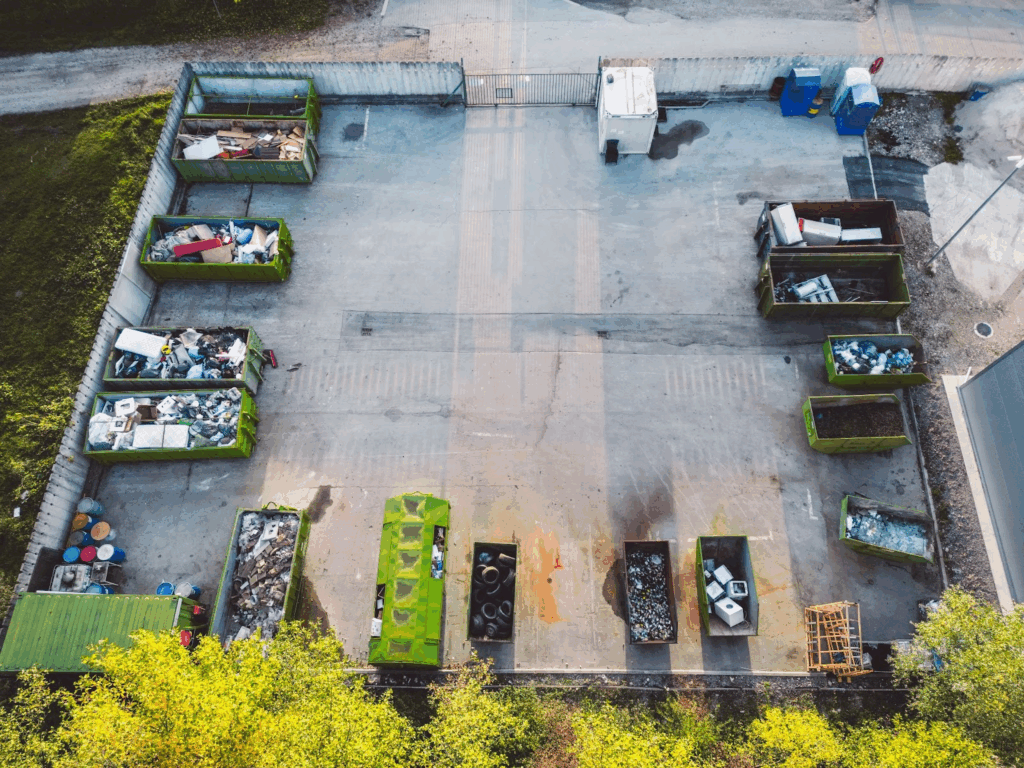Improper waste disposal significantly harms the environment. Landfills, for instance, emit large quantities of methane—a potent greenhouse gas contributing to climate change. Additionally, non-biodegradable materials, such as plastics, take centuries to decompose, polluting soil and water resources. When waste is not managed correctly, it often ends up in oceans and waterways, affecting marine life. Reports indicate that millions of tons of plastic waste enter the oceans annually, creating massive garbage patches and endangering marine ecosystems. Proper recycling and waste management are essential in combating these environmental crises by reducing waste at the source and ensuring that materials are reused whenever possible.
The Broader Consequences of Neglecting Waste Management
The consequences of neglecting waste management extend beyond immediate pollution. Poor practices also exacerbate urban flooding as blocked drains and waterways disrupt natural water flow. Moreover, the leaching of toxic substances from improperly discarded electronic waste (e-waste) seriously threatens human health and biodiversity. Effective waste management systems can help mitigate these dangers while promoting sustainable urban development.
When waste is not correctly managed, it often ends up in oceans and waterways, affecting marine life. Reports indicate that millions of tons of plastic waste enter the oceans annually, creating massive garbage patches and endangering marine ecosystems. Proper recycling and waste management are essential in combating these environmental crises by reducing waste at the source and ensuring that materials are reused whenever possible.
Benefits of Recycling
Recycling is more than just separating paper from plastic; it’s a comprehensive approach to resource conservation and waste reduction. Here are some of the key benefits:
Conserving Natural Resources
Recycling reduces the need for raw materials. For example, recycling aluminum cans saves 95% of the energy required to produce new ones from bauxite ore. Similarly, recycling paper helps preserve forests, which are vital carbon sinks. Additionally, using recycled materials reduces the strain on ecosystems disrupted during raw material extraction. This conservation approach helps maintain biodiversity and reduces deforestation. The extraction and processing of virgin materials often result in habitat destruction, making recycling a crucial tool for preserving natural ecosystems and the species that rely on them.
Reducing Energy Consumption
Manufacturing products from recycled materials generally requires less energy than raw materials. This energy savings translates to fewer greenhouse gas emissions, helping combat climate change. Moreover, lower energy consumption reduces the dependency on fossil fuels, further mitigating environmental impacts. These energy efficiencies make recycling a vital tool in achieving global sustainability goals. For instance, producing recycled glass uses about 30% less energy than creating new glass from raw materials, showcasing how small changes can lead to significant savings on a global scale.
Minimizing Landfill Waste
Landfills take up vast amounts of land and pose long-term environmental risks. Recycling decreases the volume of waste sent to landfills, extending their lifespan and reducing the need for new landfill sites. This reduction also prevents harmful leachates from contaminating groundwater. Moreover, minimizing landfill dependency helps reclaim land for more productive uses, such as agriculture or community development. The diversion of organic waste for composting further reduces methane emissions from landfills, making recycling a key player in addressing multiple environmental challenges.
Protecting Wildlife
Recycling reduces the likelihood of waste ending up in natural habitats. This protects wildlife from ingesting or becoming entangled in debris, ensuring ecosystems remain balanced. In particular, reducing plastic waste minimizes threats to marine life, often severely impacted by ocean pollution. By fostering cleaner environments, recycling promotes healthier ecosystems for all species. For example, eliminating single-use plastics through effective recycling can dramatically reduce the mortality rates of marine species affected by microplastic ingestion.
The Intricate Process of Recycling
Recycling is more than just separating paper from plastic; it’s a comprehensive approach to resource conservation and waste reduction. Here are some of the key benefits:
Conserving Natural Resources
Recycling reduces the need for raw materials. For example, recycling aluminum cans saves 95% of the energy required to produce new ones from bauxite ore. Similarly, recycling paper helps preserve forests, which are vital carbon sinks. Additionally, using recycled materials reduces the strain on ecosystems disrupted during raw material extraction. This conservation approach helps maintain biodiversity and reduces deforestation.
Reducing Energy Consumption
Manufacturing products from recycled materials generally requires less energy than using raw materials. These energy savings translate to fewer greenhouse gas emissions, helping combat climate change. Moreover, lower energy consumption reduces the dependency on fossil fuels, further mitigating environmental impacts. These energy efficiencies make recycling a vital tool in achieving global sustainability goals.
Minimizing Landfill Waste
Landfills take up vast amounts of land and pose long-term environmental risks. Recycling decreases the volume of waste sent to landfills, extending their lifespan and reducing the need for new landfill sites. This reduction also prevents harmful leachates from contaminating groundwater. Moreover, minimizing landfill dependency helps reclaim land for more productive uses, such as agriculture or community development.
The Economic Advantages of Recycling and Waste Management
Proper waste management and recycling benefit the environment and stimulate the economy. The recycling industry creates jobs in collection, sorting, processing, and manufacturing. In the United States alone, the recycling sector supports over 750,000 jobs and generates billions of dollars in revenue annually. Additionally, businesses that adopt sustainable waste management practices often see financial benefits. Efficient waste reduction can lower disposal costs, and recycled materials are frequently more affordable than raw materials. Companies emphasizing sustainability also attract environmentally conscious consumers, enhancing their brand reputation. For governments, investing in recycling programs can lead to long-term savings by reducing the costs associated with landfill maintenance and waste cleanup initiatives.
Proper Waste Management in an Economic Context
Proper waste management and recycling benefit the environment and stimulate the economy. The recycling industry creates jobs in collection, sorting, processing, and manufacturing. In the United States alone, the recycling sector supports over 750,000 jobs and generates billions of dollars in revenue annually. Businesses that adopt sustainable waste management practices often see financial benefits. Efficient waste reduction can lower disposal costs, and recycled materials are frequently more affordable than raw materials. Companies that emphasize sustainability also attract environmentally conscious consumers, enhancing their brand reputation.

Challenges in Recycling and Waste Management
Recycling offers many benefits, yet several challenges persist. Contamination often disrupts the recycling process, requiring extensive education and awareness campaigns. Additionally, limited infrastructure and market fluctuations hinder practical recycling efforts.
Contamination
Recyclables often become contaminated with non-recyclable items, making it difficult to process them effectively. Education and awareness campaigns are essential to address this issue. Contamination can result from improper disposal practices, such as mixing food waste with recyclables. Reducing contamination requires consistent public outreach and more transparent labeling on recycling bins.
Lack of Infrastructure
Many regions lack the necessary facilities for comprehensive recycling and waste management. Investments in infrastructure, such as recycling centers and composting facilities, are crucial to expanding access. Without these facilities, recyclable materials often end up in landfills, exacerbating environmental issues. Government funding and private-sector partnerships are needed to develop a more robust waste management network.
Consumer Behavior
Changing consumer habits is one of the most significant hurdles. Encouraging individuals to prioritize recycling and reduce waste requires persistent education and the promotion of sustainable alternatives. Consumers often lack clear guidance on what can be recycled, leading to improper disposal. Incentive programs and community engagement initiatives can play a key role in fostering better recycling habits.
Steps Toward Effective Recycling and Waste Management
Addressing recycling and waste management challenges requires a collaborative approach among individuals, businesses, and governments. Practical actions depend on partnerships and targeted strategies.
Practical Recycling and Waste Management Tips for Individuals
Educate yourself about which materials are recyclable in your local area and learn how to dispose of them properly. Minimize waste by opting for reusable products and avoiding single-use plastics. Composting organic waste can reduce the amount sent to landfills while creating nutrient-rich soil. Additionally, participating in community programs by supporting local recycling initiatives and advocating for improved waste management systems can make a significant impact.
How Businesses Can Embrace Recycling and Waste Management
Businesses can adopt sustainable practices by implementing waste reduction strategies, such as using recyclable packaging and minimizing production waste. Partnering with recycling companies ensures proper disposal and recycling of materials. Additionally, educating employees on sustainable practices encourages environmentally friendly workplace habits. Reporting progress transparently in sustainability efforts can inspire trust and motivate other organizations to follow suit.
The Role of Technology in Waste Management
Advancements in technology are revolutionizing recycling and waste management. Innovations like smart bins with sensors can sort waste more efficiently, reducing contamination. Additionally, AI-powered systems are improving the sorting process at recycling facilities, enhancing the quality and quantity of recycled materials. Another promising development is chemical recycling, which breaks down plastics into their essential components, allowing them to be reused indefinitely. These technologies pave the way for a more sustainable future, making recycling and waste management more effective and accessible.
Global Examples of Successful Recycling Programs
Several countries have set exemplary standards in recycling and waste management. Sweden, for instance, recycles or converts over 99% of its waste into energy, showcasing a highly effective waste-to-energy program. Germany has achieved a recycling rate exceeding 65% through comprehensive waste management policies and strong public participation, making it a global leader. Meanwhile, South Korea’s strict regulations and innovative programs have resulted in a recycling rate of over 53%, significantly reducing waste sent to landfills. These examples emphasize the crucial role of government initiatives, public awareness, and robust infrastructure in achieving effective recycling and waste management.
Recycling Efforts on a Local Level
In addition to national efforts, cities like San Francisco have implemented ambitious zero-waste goals, achieving a diversion rate of over 80% from landfills. By mandating composting and recycling for residents and businesses, the city demonstrates how local governance can reduce waste. Similarly, Japan’s meticulous waste sorting system has made it a global model for efficiency, involving citizens in every step of the recycling process to ensure maximum material recovery.
The Future of Recycling and Waste Management
As the global population continues to grow, so does the urgency of addressing waste-related challenges. The future of recycling and waste management lies in a circular economy, where materials are continuously reused, and waste is minimized. Achieving this vision requires collaboration across sectors and a commitment to sustainability. Educating the next generation is also vital. Schools and community programs must emphasize the importance of recycling and waste management, fostering a culture of environmental stewardship.

Why Recycling and Waste Management Matter for a Sustainable Future
Recycling and waste management are indispensable for a sustainable future. These practices benefit the environment and the economy by reducing waste, conserving resources, and protecting ecosystems. While challenges exist, they can be overcome through education, innovation, and collective action. Every individual, business, and government has a role to play in ensuring the success of recycling and waste management efforts. We can create a cleaner, healthier planet for future generations by prioritizing these practices. Now is the time to act—because the cost of inaction is too great. Visit our Top Dog Waste Solutions blog to learn more about our professional recycling services.








